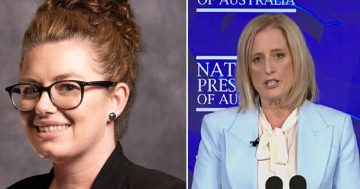UNITED KINGDOM
 A string of former United Kingdom diplomats, including ambassadors and high commissioners, have written to Prime Minister, Theresa May warning that the problems surrounding the country’s exit from the European Union (Brexit) had become a “national crisis”.
A string of former United Kingdom diplomats, including ambassadors and high commissioners, have written to Prime Minister, Theresa May warning that the problems surrounding the country’s exit from the European Union (Brexit) had become a “national crisis”.
The 40-strong group urged the Prime Minister to delay proceedings until the Government had greater clarity about Britain’s likely future relationship with Europe.
The letter, signed by many of the most senior diplomats of the last 20 years, underlined concerns that British influence in the world would wane if the country left Europe’s trading and foreign policy bloc.
“As former diplomats who have served around the world we have a clear understanding of what contributes to Britain’s influence in the world. Our advice to Theresa May today is clear: We should not leave the EU when we have no clarity about our final destination,” the diplomats wrote.
“Instead we must use the mechanisms at our disposal; above all we must seek to extend the Article 50 negotiating period.”
The signatories are headed by Sir Nigel Sheinwald (pictured), former Permanent Representative to the EU and Ambassador to the United States, who earlier had declared his support for the People’s Vote campaign, which seeks a new referendum on Britain’s membership of the EU.
Other signatories include more familiar opponents of Brexit including Lord Kerr, the author of Article 50, Lord Hannay, Permanent Representative to the then European Economic Community under Prime Minister Margaret Thatcher, and Lord Ricketts, the former Ambassador to France and National Security Adviser to David Cameron.
Their letter states: “Our country’s national interest must always be paramount. The Brexit fiasco has already weakened the UK’s standing in the world. We strongly advocate a change of direction before it is too late. It is clear that Brexit has turned into a national crisis.
“There is no possible deal that will be a sensible alternative to the privileged one we have today as members of the EU with a seat at the table, inside the single market and customs union but outside the Euro[zone] and Schengen [area].
They letter continues that in addition to extending Article 50, there was a powerful argument to go back to the people and ask them whether they wanted the negotiated Brexit deal or would prefer to stay in the European Union.
London, 15 February, 2019






